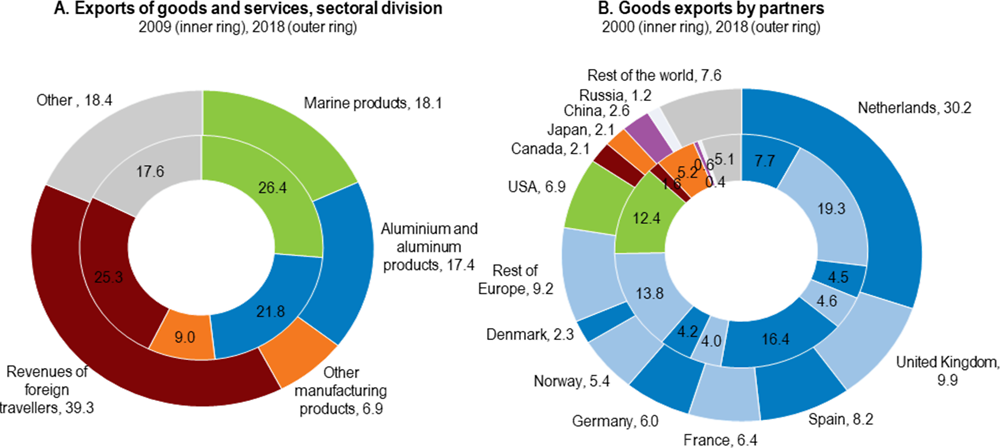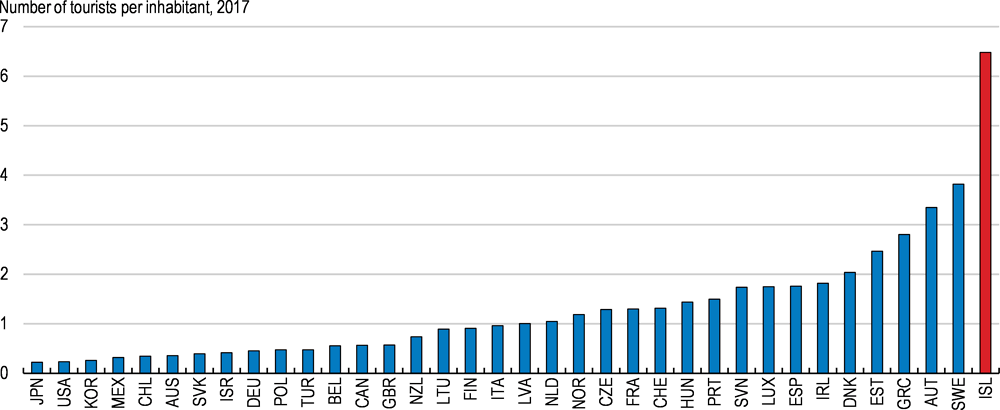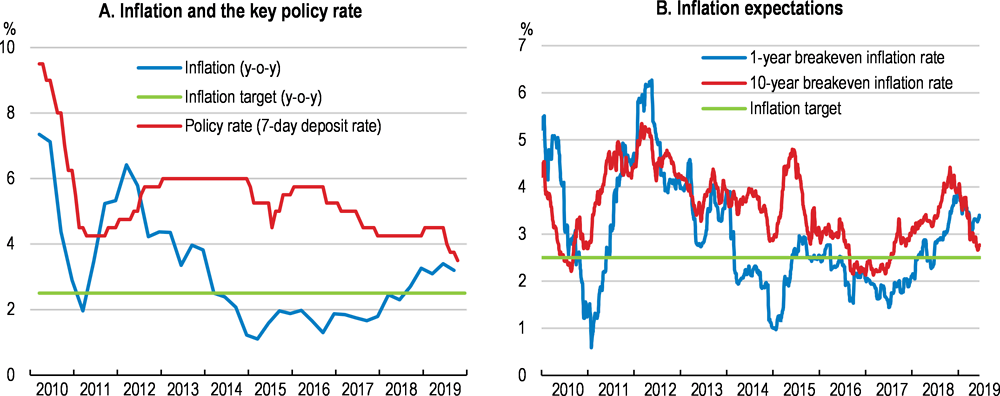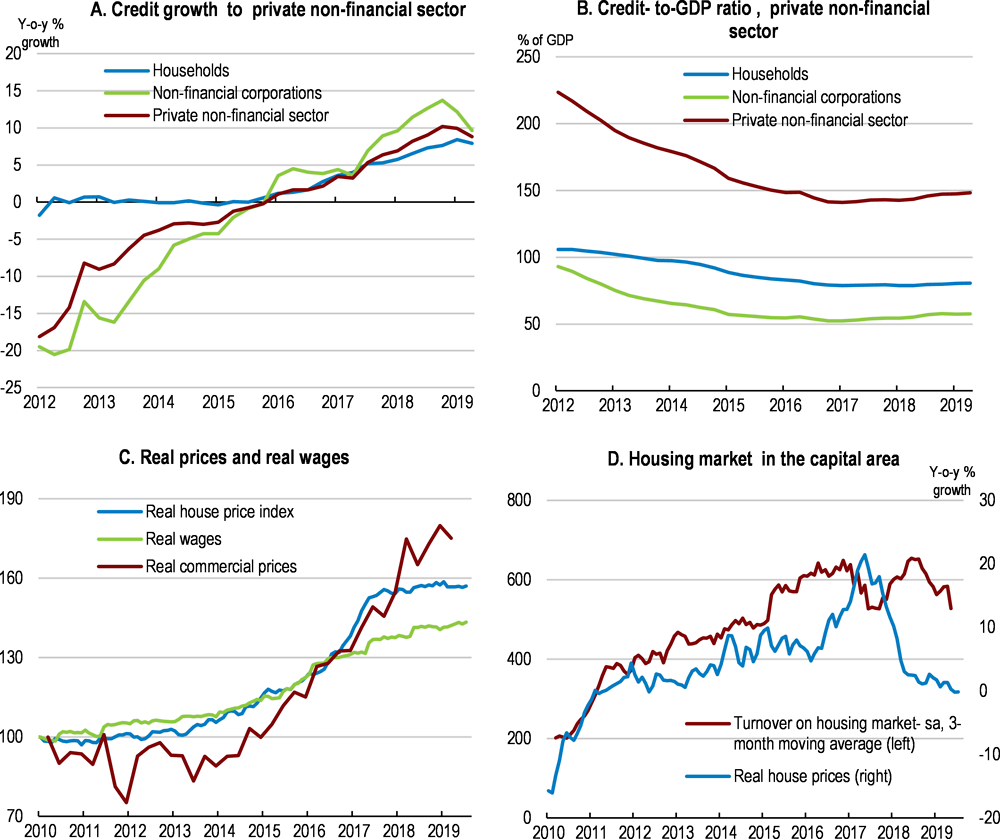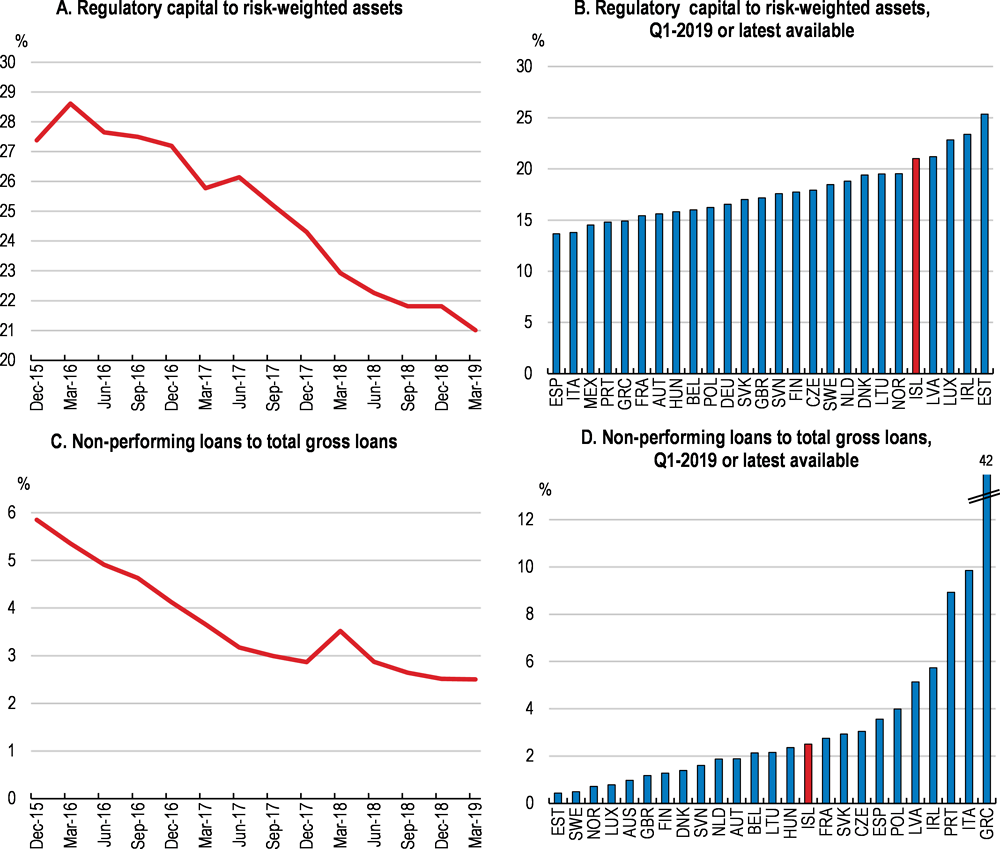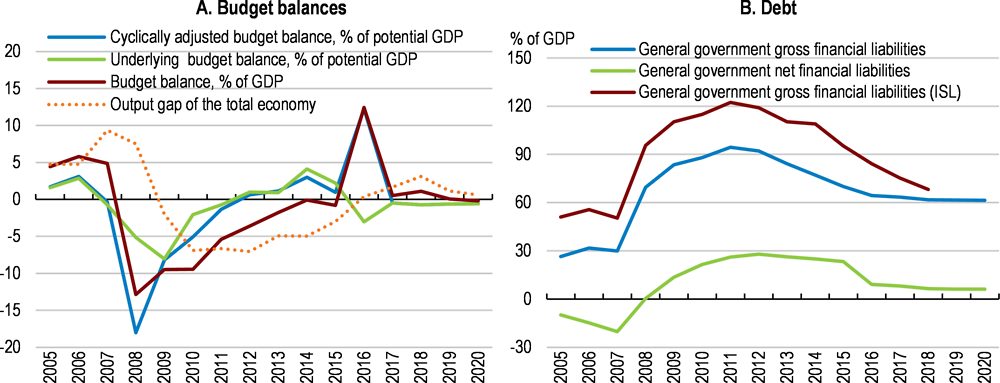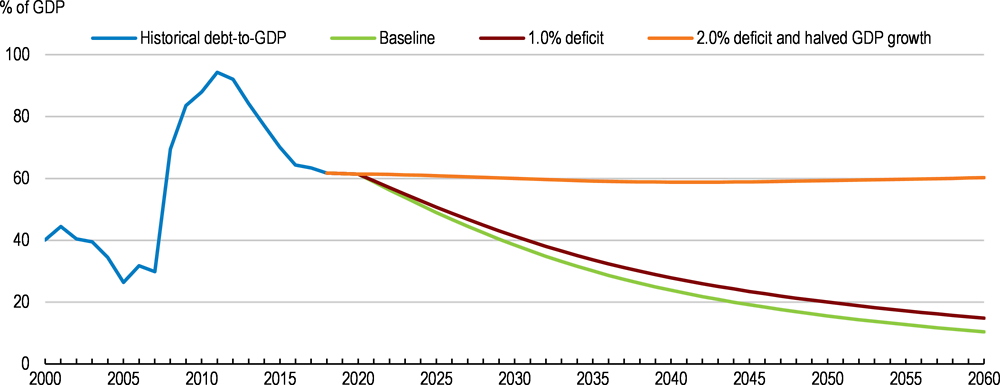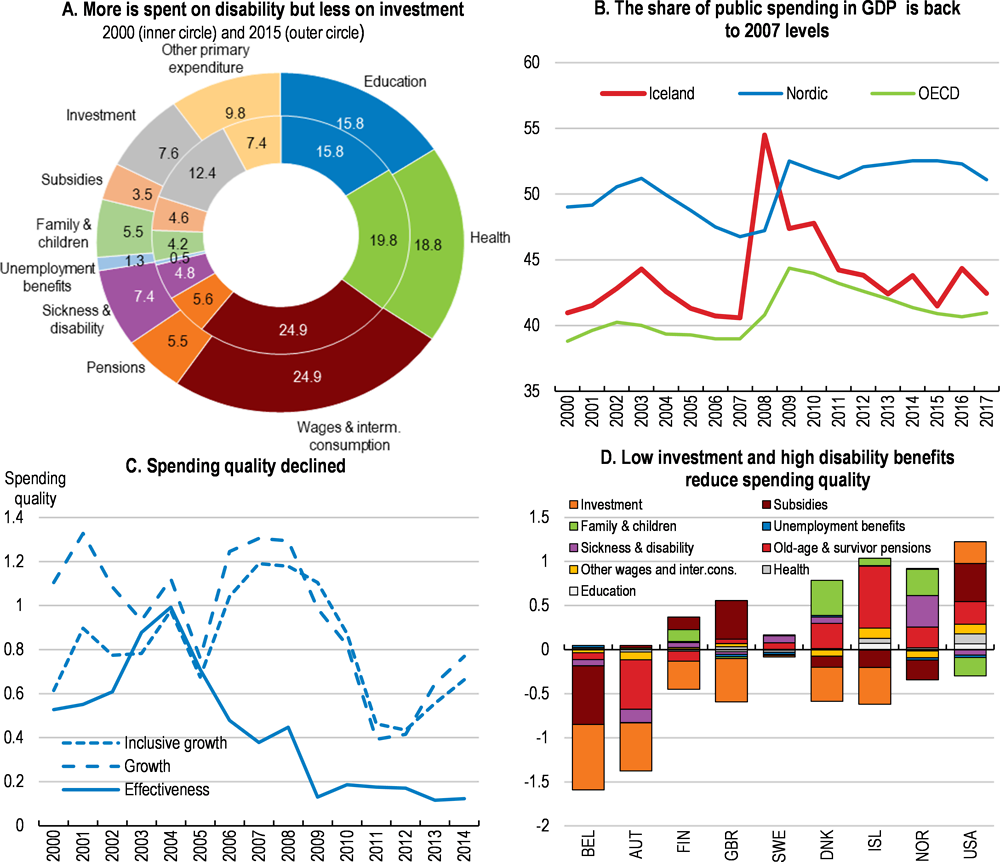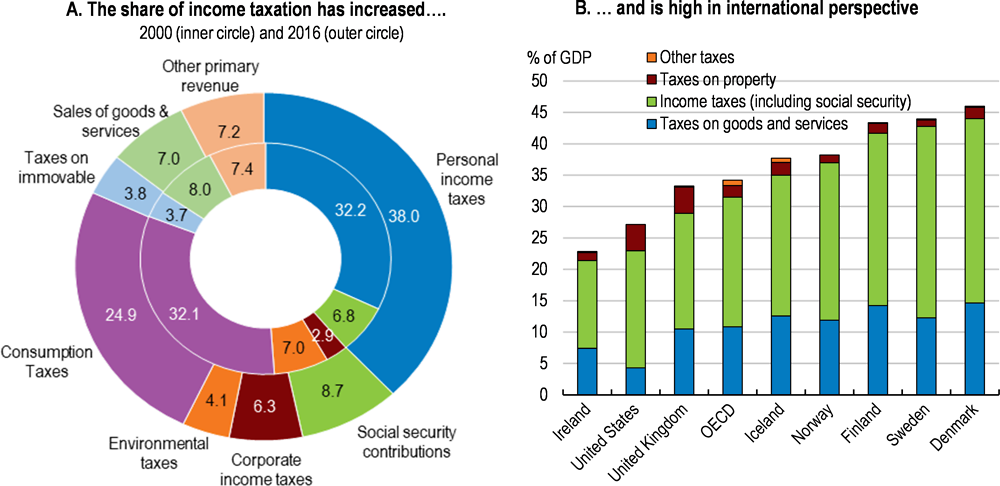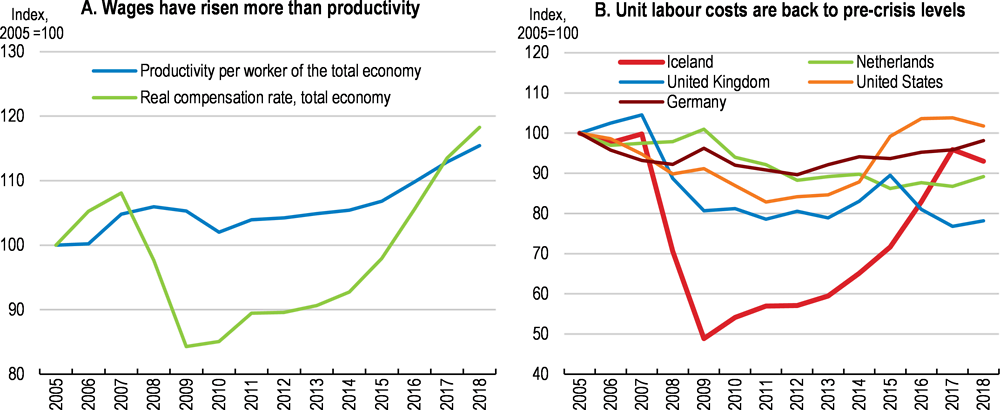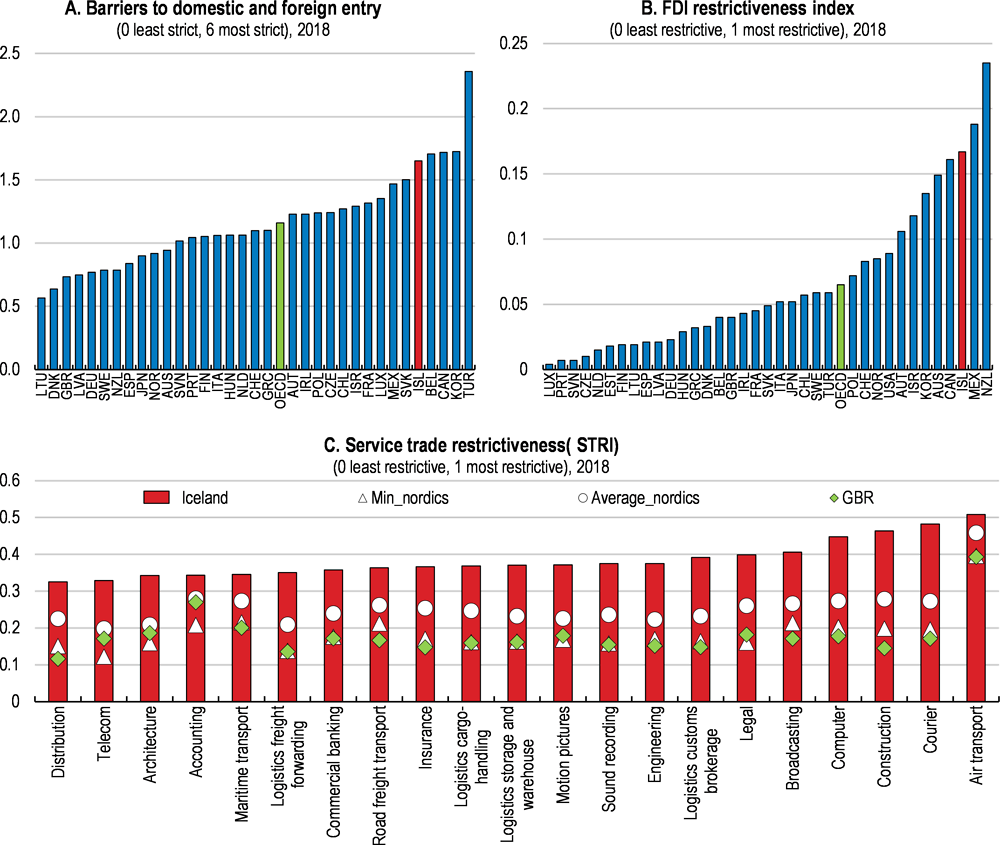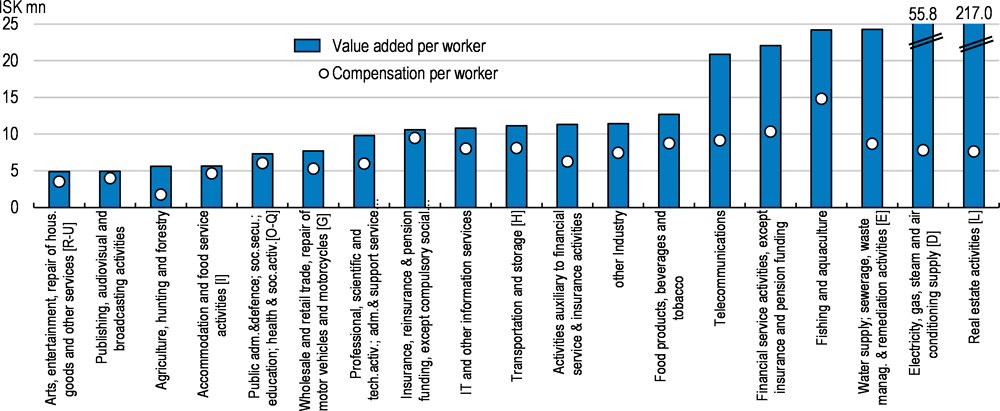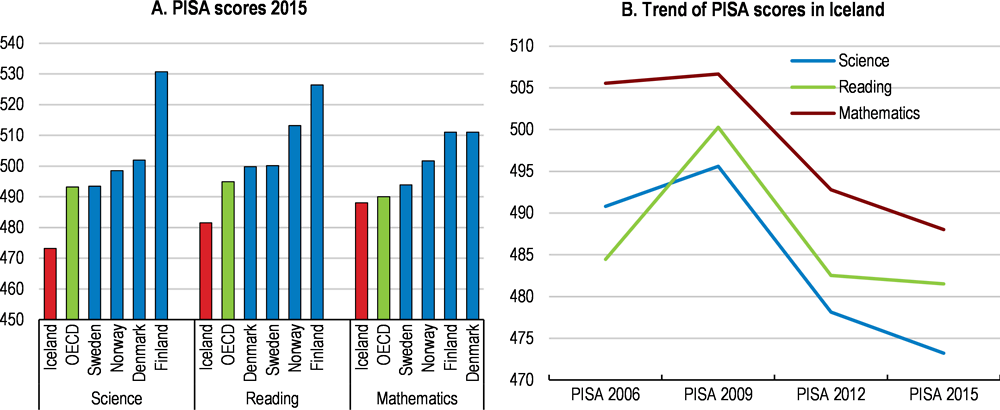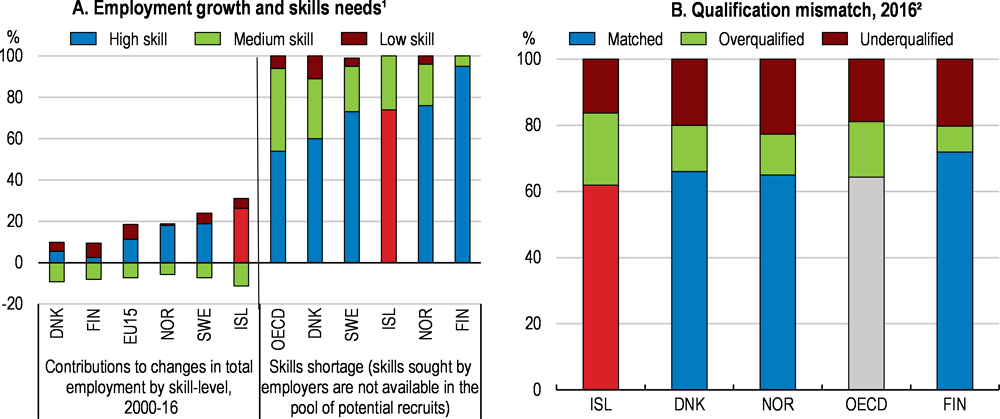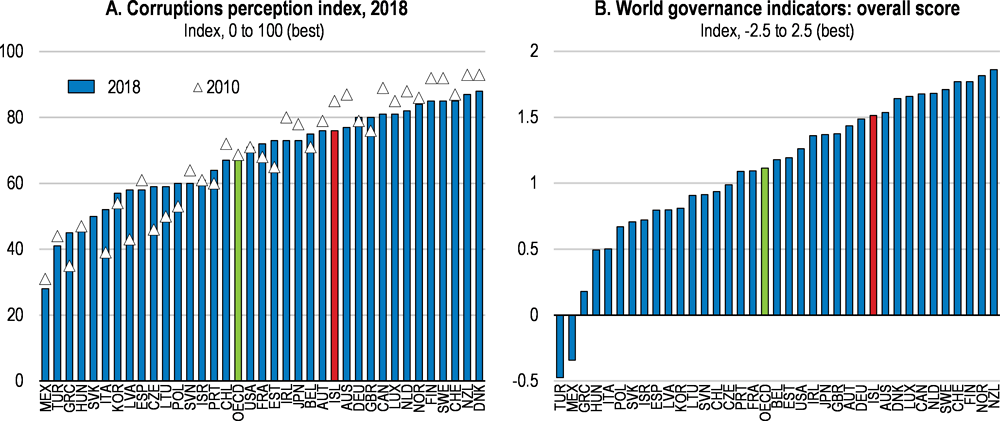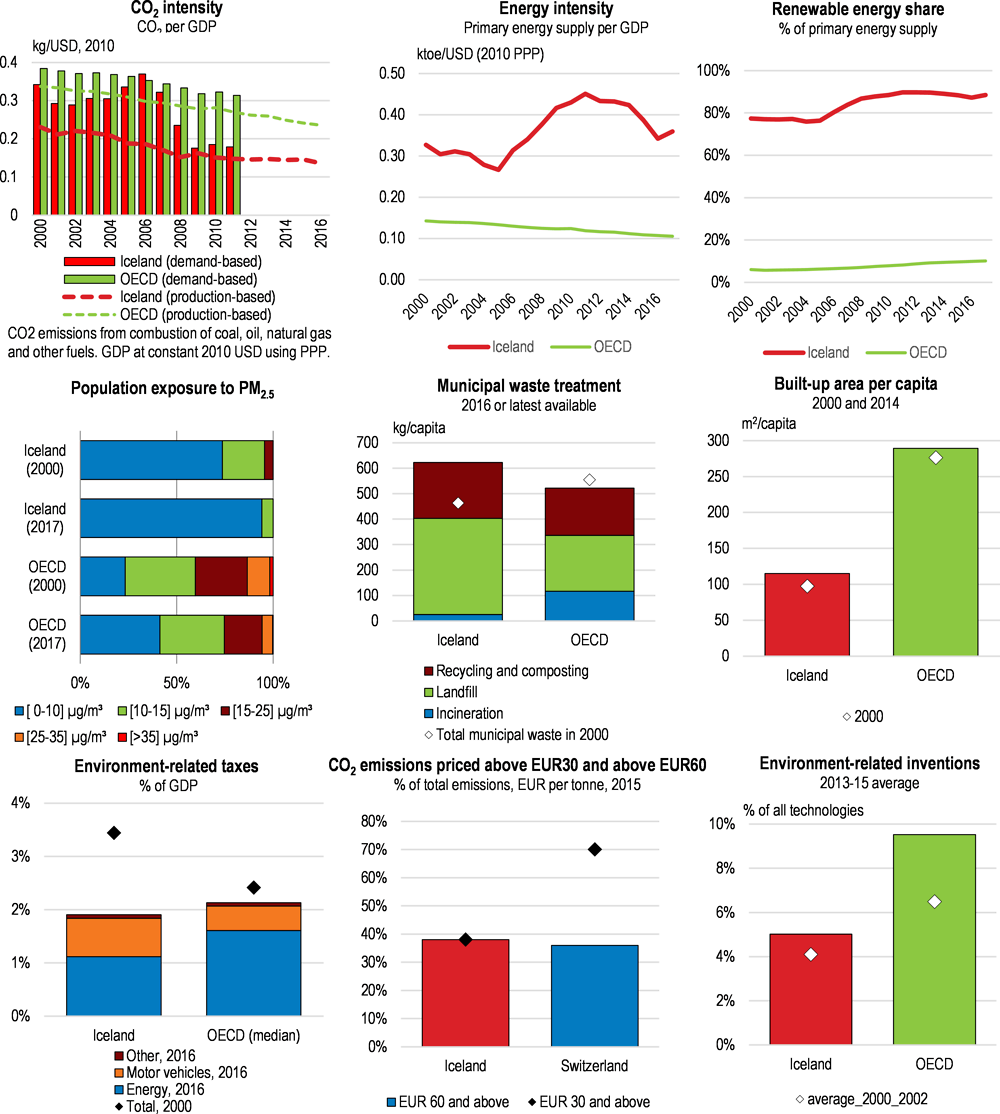[19] Bloch, D. and J. Fournier (2018), “The Deterioration of the Public Spending Mix During the Global Financial Crisis: Insights From New Indicators”, OECD Economics Department Working Papers, No. 1465, OECD Publishing, Paris, https://dx.doi.org/10.1787/2f6d2e8f-en.
[44] Calel, R. and A. Dechezleprêtre (2016), “Environmental Policy and Directed Technological Change: Evidence from the European Carbon Market”, Review of Economics and Statistics, Vol. 98/1, pp. 173-191, http://dx.doi.org/10.1162/REST_a_00470.
[14] Central Bank of Iceland (2019), Financial Stability, 2019/1.
[6] Central Bank of Iceland (2019), Monetary Bulletin, 2019/2.
[15] Central Bank of Iceland (2019), Monetary Bulletin, 2019/3.
[12] Central Bank of Iceland (2019), Removal of Capital Controls on Holders of Offshore Krónur and Reduction of Special Reserve Requirement on Capital Inflow, News, 4 March.
[16] Central Bank of Iceland (2018), Financial Stability, 2018/2.
[37] Council of Europe (2015), Group of states against corruption, general activity report.
[40] Cournède, B. et al. (2018), “Public Finance Structure and Inclusive Growth”, OECD Policy paper 25.
[8] Cournède, B., S. Sakha and V. Ziemann (2019), Links Between Housing Markets and Economic Resilience, OECD Economics Department Working Papers, forthcoming, OECD Publishing, Paris.
[39] Égert, B. and P. Gal (2017), “The Quantification of Structural Reforms in OECD Countries: A New Framework”, OECD Economics Department Working Papers, No. 1354, http://dx.doi.org/10.1787/2d887027-en.
[3] Einarsson, B. et al. (2013), “The Production and Export Structure of the Icelandic Economy: an International Comparison”.
[23] Einarsson, B. et al. (2015), “The Long History of Financial Boom-bust Cycles in Iceland”, Central Bank of Iceland Working Papers No. 68, http://www.sedlabanki.is.
[17] FATF (2018), Anti-money Laundering and Counter-terrorist Financing Measures - Iceland, Fourth Round Mutual Evaluation Report, FATF, Paris, http://www.fatf-gafi.org/publications/mutualevaluations/documents/mer-iceland-2018.html.
[32] Federation of Icelandic Industrialists (2018), The Icelandic Economy.
[11] Forbes, K. (2018), Macroprudential Policy After the Crisis: Forging a Thor’s Hammer for Financial Stability in Iceland, Report Prepared at the Request of the Task Force Deticated to Reviewing Monetary and Currency Policies for Iceland.
[13] Government of Iceland (2018), Financial Stability Should Be Prioritised Over Price Stability, News, 5 June.
[4] Gudjonsson, H. (2015), “Reykjavík-Rotterdam, a study of exports of goods to the Netherlands”, Working Paper, Statistics Iceland, https://hagstofa.is/media/49234/hag_151102.pdf.
[35] Guillemette, Y. et al. (2017), “A Revised Approach to Productivity Convergence in Long-term Scenarios”, OECD Economic Department Working Papers 1385, https://dx.doi.org/10.1787/0b8947e3-en.
[1] Haraldsson, G. and D. Carey (2011), “Ensuring a Sustainable and Efficient Fishery in Iceland”, OECD Economics Department Working Papers, No. 891, OECD Publishing, Paris, https://dx.doi.org/10.1787/5kg566jfrpzr-en.
[7] IMF (2018), Iceland: Article IV, IMF Country Report 18/318.
[9] IMF (2017), Iceland: Article IV, IMF Country Report 17/163.
[24] IMF (2010), Economics of Sovereign Wealth Funds: Issues for Policymakers, IMF.
[25] Kakanov, E., H. Blöchliger and L. Demmou (2018), “Resource Curse in Oil Exporting Countries”, OECD Economics Department Working Papers, No. 1511, OECD Publishing, Paris, https://dx.doi.org/10.1787/a5012a3d-en.
[45] Koźluk, T. (2014), “The Indicators of the Economic Burdens of Environmental Policy Design: Results from the OECD Questionnaire”, OECD Economics Department Working Papers, No. 1178, OECD Publishing, Paris, https://dx.doi.org/10.1787/5jxrjnbnbm8v-en.
[5] McKinsey&Company (2017), Coping with Success: Managing Overcrowding in Tourism Destinations.
[42] Ministry for the Environment and Natural Resources (2018), Iceland’s Climate Action Plan for 2018-2030.
[30] Ministry of Finance (2012), General Owner Policy of the State: Public Companies and Associations.
[26] Norges Bank (2018), Government Pension Fund Global, NBIM, https://www.nbim.no/contentassets/49715a01ed684b1686ff3c017f1efa12/annual-report-2017---government-pension-fund-global.pdf.
[31] OECD (2019), Jobs Strategy.
[21] OECD (2018), Consumption Tax Trends: VAT/GST and excise rates, trends and policy issues, OECD, http://dx.doi.org/10.1787/cct-2016-en.
[2] OECD (2018), Job Strategy, OECD.
[34] OECD (2018), OECD Economic Surveys: Finland 2018, OECD Publishing, Paris, https://dx.doi.org/10.1787/eco_surveys-fin-2018-en.
[20] OECD (2018), Tax Policy Reforms 2018: OECD and Selected Partner Economies, OECD Publishing, Paris, https://dx.doi.org/10.1787/9789264304468-en.
[43] OECD (2018), Taxing Energy Use 2018: Companion to the Taxing Energy Use Database, OECD Publishing, Paris, https://dx.doi.org/10.1787/9789264289635-en.
[10] OECD (2017), OECD Economic Surveys: Iceland 2017, OECD Publishing, Paris, https://dx.doi.org/10.1787/eco_surveys-isl-2017-en.
[29] OECD (2017), The Size and Sectoral Distribution of State-Owned Enterprises, OECD Publishing, Paris, https://dx.doi.org/10.1787/9789264280663-en.
[41] OECD (2014), Environmental Performance Review Iceland, OECD Publishing.
[22] OECD (2013), OECD Economic Surveys: Switzerland, OECD Publishing, http://www.oecd.org/eco/surveys/Switzerland.
[27] OECD (2012), OECD Economic Surveys: Australia 2012, OECD Publishing, Paris, https://dx.doi.org/10.1787/eco_surveys-aus-2012-en.
[38] OECD Working Group on Bribery in International Business Transactions (2018), Phase 3 Follow-Up: Additional Report by Iceland.
[33] SALEK (2016), The Icelandic Labour Market, report commissioned by the SALEK group.
[18] von Trapp, L. and S. Nicol (2018), Measuring IFI Independence: A First Pass Using the OECD IFI Database.
[28] World Bank (2016), World Bank Indicators.
[36] WorldBank (2019), World Governance Indicators, http://www.govindicators.org.






